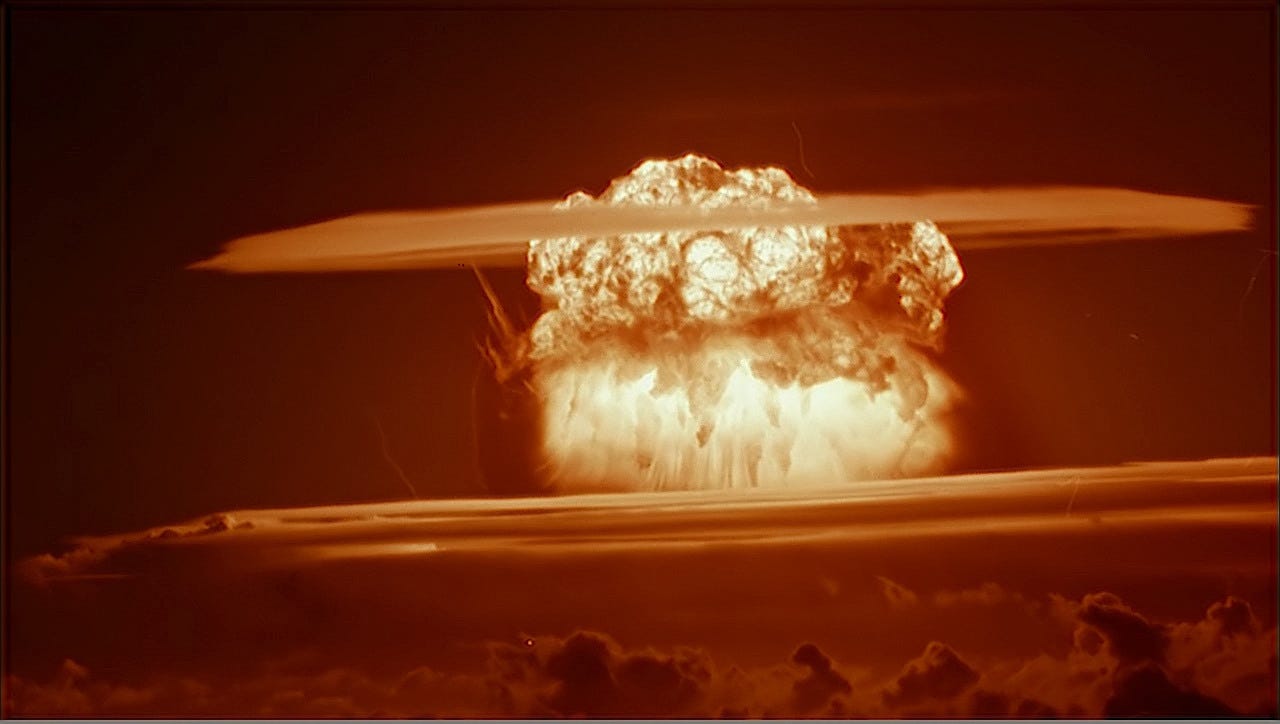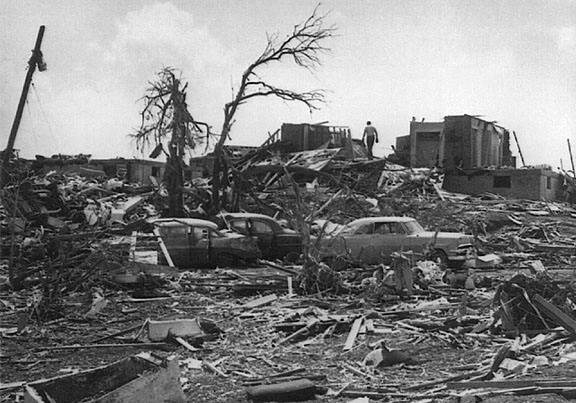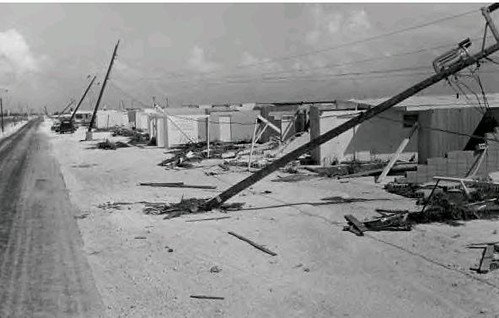I'm back, sorry for the long wait.
As of now, I will be focusing on this timeline and y medieval timeline "To Delve and Spin" which can be found
HERE
I've made some edits to the previous chapters (mostly correcting inaccuracies) and I strongly suggest you go back and read those before reading this. If you've done that, let's move forward...
Important Timezones:
- 19:00 D.C. time & Havana time (previous day)
- 00:00 London time
- 01:00 Berlin time & Bonn time
- 03:00 Moscow time
- 05:30 Delhi time
- 08:00 Beijing time
Chapter 4 – Resolution
28 – 29 October 1962
“The major lesson of the Cuban Missile Crisis is this: The indefinite combination of human fallibility and nuclear weapons will destroy nations.”
– Robert Macnamara
The airstrikes of the previous day had been resoundingly successful, yet EXCOMM was not sleeping any sounder. On the contrary, before the strikes there were not dead Soviet military personnel to comprehend with, besides the deceased from the B-59. Whilst much of the threat of Cuban-based missiles wiping out American cities was removed, had they just picked a fistfight with a worse adversary?
At eight the previous evening, Kennedy and EXCOMM had received both a letter from Khrushchev and a phone call from Ambassador Dobrynin requesting a voice call between the two superpower leaders. Was it safe for this to go ahead? And if it was, how would it be arranged? There was no direct line connecting Moscow and Washington except through their embassies. There were doubts among EXCOMM members that the Soviets were trying to bait the President into revealing critical information concerning American plans in Cuba. Someone would have to examine the offer. At 04:00 EST on the 28th, President Kennedy dispatched his brother, Attorney General Robert Kennedy, to the Soviet embassy.
After this, Kennedy and EXCOMM spend the next few hours discussing what to do next. The plan from yesterday, to reply to the first letter from Khrushchev, was still agreed upon with a few alterations. If the Soviets withdrew what was left of their nuclear forces on Cuba, the Americans were prepared to cease attacks on Cuba and not invade. Kennedy was worried about giving the Soviets further reasons to attack the United States anywhere else other than the western Atlantic. In case that did not work, the Joint Chiefs urged the President to carry out preparations for OPLAN -316, a week-long air campaign followed by invasion, on the grounds that having already struck the Cubans and Soviets meant leaving any remaining weapons untouched would be inviting them to be used against the United States. Kennedy, still in a malaise since the news of the B-59, is not entirely convinced. At 05:15 EST, Secretary of the Navy John Connally arrives with news that the Cubans are attacking Guantanamo Bay.
Over at 1125 16th Street NW [1], Robert Kennedy is meeting with the Soviet Ambassador Dobrynin. He informs the ambassador that the President is considering Khrushchev's offer of a voice-to-voice call before presenting a letter drafted quietly by President Kennedy. In it is the details of yesterday's plans to respond to Khrushchev's letter, agreeing to not invade Cuba in return for the removal of Soviet nuclear weapons from Cuba. Furthermore, in the letter is a promise that the Jupiter missiles in Turkey will be removed within 5 months, but this has to be kept private or the deal is off. Dobrynin agrees to forward the message to Moscow, although he does not say it aloud he does not believe they will be accepted [2]. Dobrynin noted that Kennedy was very tired, and looked like he hadn't slept for a long time. He then rushes to transmit the message to Moscow. Robert Kennedy left the Soviet embassy at 04:57 EST.
Back at the White House, having moved downstairs to the Situation Room, EXCOMM was digesting the news from Guantanamo. At 03:00 Havana time exactly, Cuban artillery had begun pounding the American base and the Marines guarding the perimeter before three infantry divisions launched a massed assault on the base. There was also evidence of Soviet presence during the assault. The Marines were putting up stiff resistance but no one was certain how long they could hold out for. Kennedy issues orders calling for the mobilisation of the National Guard and a civil defence alert to be put out across the country. The rest of the morning is very tense, the energy in the men present slowly declines as the White House fast runs out of coffee.
President Kennedy gets a little bit of rest when he leaves the White House to go to Mass [3], leaving EXCOMM in Vice President Lyndon Johnson's hands. Johnson joked that
"maybe the President has gone to pray before he nukes Russia." [4] No one else laughed, not even Curtis LeMay [5]. When he arrived back he called a special session of Congress for 13:00 EST. Before then, he needs to sleep. It's now 11:34 EST. EXCOMM continues their business and the Joint Chiefs continue their preparations for invasion.
The rest of the day is tense, recon flights over Cuba bring back news of mostly positive results but there was lingering dread about what was going on in Russia. It took 12 hours to transmit messages between Washington and Moscow.
The President is woken up after a 45-minute nap to be presented with a speech drafted by McGeorge Bundy. He is also handed a copy of a Congressional resolution, allowing for the use of military force against Cuba, drafted by the State Department within the last few days for such an event as this [6]. It's now 12:27 EST, Kennedy is still exhausted, but he's speaking before Congress in just over half an hour and so he gulps down yet another pot of coffee and smartens himself up.
Kennedy address begins at 13:01 EST. Only the strangest session in American history as most members don't show up. Some are home with their families as the world around them ends whilst others go to ground completely. Those who are present now will be evacuated as well following the vote. Some 115 Representatives and 43 Senators attend by telephone. This makes the passage longer but by 15:03 EST it's done. Only one vote against, Senator Wayne Morse of Oregon - opposing on procedural grounds, insisting on a declaration of war. Three others abstain having never picked up the phone, but with 531-1 against, the Cuba Resolution is passed. President Kennedy now has Congressional authorization to wage war in Cuba. It's just in time as well since there is more news as he arrives back at the White House.
It's 13:14 EST, the Soviet Foxtrot-class submarine B-130 is being pursued by the U.S aircraft carrier USS
Essex and its task force and has been for over 12 hours. The sub has already been attacked with depth charges and is damaged but not fatally. The task force is an excellent target. With the depth charges having damaged the burst to the extent they have, the captain and the political officer deduce that war has broken out. Fearing that Moscow and Leningrad are little more than rubble they order the torpedo to be launched against the
Essex. Closing as closley to the carrier as he captain wants to go, the torpedo is fired from a distance and then turns and flees. At 13: 16 and 12 seconds, the USS Essex is vapourised [7]. 15 minutes later, Kennedy is informed of the fate of the Essex. "
Those sons of bitches!" he exclaims, he is enraged. That's twice the United States Navy has been attacked with nuclear weapons! Once may have been an accident but two is definitely on purpose. Again, General Power at SAC calls the President, and Kennedy picks up. This time, the President requests a number of aircraft be put on standby to launch, against Cuba. Another meeting of EXCOMM agrees on a retaliatory strike. America's message with be delivered by to the settlements of Guantanamo and Santa Clara. The former to aid the Marines besieged in Guantanamo Bay whilst the latter serves as both a strategic target to hinder troop movements and a symbolic one for Castro's revolutionary government. At 16:23 EST, Kennedy is informed of a firefight in Berlin. Apparently, at 21:12 local time, East German border guards had fired on American military policemen at Checkpoint Charlie before being ordered to fall back. There were also reports of increased military activity around West Berlin. The timing of the news could not have been any worse.
At 18:11 EST, three B-52 Stratofortress and three B-47 Stratojet bombers take over from Dyess AFB in Texas. They are split into two groups of three with a main bomber and two reserves. The B-52s are headed for Guantanamo whilst the B-47s are headed to Santa Clara. Launched ahead of them are waves of aircraft from Cuba launching conventional strikes to clear airspace above and around the targets. Two waves launched against Santa Clara and Guantanamo take out flak guns and SAM sites. During the two waves on Guantanamo, 6 F-4 Phantoms are lost. By 20:30, the B-52s have arrived at Guantanamo and the lead bomber releases its gravity bomb at 20:31. The 28th of October will be remembered by the survivors as the day with two sunrises. The people of Santa Clara feel much the same as the B-47s arrive. The two settlements are oblierated by Mark 39 gravity bombs, each with a yield of 3.8 megatons. The United States has fired the first nuclear weapons in anger since 1945.
As the day - the second day of the Third World War - comes to an end, Kennedy is preparing to have some real sleep. Three nuclear bombs had been detonated in anger, Congress had authorised him to do whatever he deemed necessary to protect national security, and there was still no message back from Moscow yet except for the B-130. The world was falling apart. Maybe it was all a nightmare. Maybe he'd wake up in 8 hours time and it would all be a bad dream, the missiles wouldn't really be there, thousand of Americans would be alive and...
...at 22:34, he is awoken from his slumber by his brother Robert Kennedy. If the cold water to the face wasn't shocking enough, the news a mushroom cloud rising over Guantanamo Bay shocked him awake [8]. Clearly the air strikes weren't enough. There were evidently more nuclear weapons on Cuba that previously anticipated. That left only one choice to ensure the full removal of the missiles. At 22:41, General Maxwell Taylor is awoken by a phone call. He is asked how soon an invasion of Cuba can be launched.
Moscow was never known historically for its warm weather, but on the morning of the 28th October 1962 it seemed colder than usual. Meeting in Stalin's old dacha outside Moscow, Khrushchev knows the mood of the room. "
You created this! This was your idea and now we're at war because of you" The Presidium's challenge now was to try and find a way to pull themselves out of this mess before the noose tightened too tightly around their necks. Was that even still possible?
Khrushchev was still digesting the news of the B-59 and the nuclear blast. It couldn't have come at a worse time, after the already crappy day that the 27th was, with that U-2 flying into their airspace [9] and their own forces firing on American aircraft. As a precaution, Khrushchev orders the strategic forces of the Soviet Union to high alert and allowed the Navy permission to engage the Americans as "
self-defense." [10] There wasn't a dry forehead in the room, American ICBMs could arrive in Moscow faster than diplomatic communiques could, that's why the bloody missiles were put in Cuba in the first place. There was real fear that an American strike could come whilst they were discussing. At 04:12 Moscow time, the American ambassador, Foy Kohler, is woken from his bed. He has a phone call from Khrushchev, he is told that an "extremely serious incident" means Khrushchev wishes to meet him. He dreads to think what's happened. The Moscow police stop all traffic in the city to get the ambassador to Kuntsevo. He arrives by 04:55 Moscow time. Khrushchev is not a happy man, and he lets the Ambassador know. He has reports of nuclear weapons being used in the Caribbean and a Soviet submarine being lost. Whilst its possible that the sub was lost by accident, the B-59 was carrying a nuclear torpedo afterall, the possibility of a deliberate attack can't be ruled out. Was it part of the setup to an American invasion by clearing the seas around Cuba? The lack of complete information compounded the tension among the Presidium, forcing them to play all angles at once in an increasingly frenzied game of bluff that the statesmen of 1914 would have understood [11].
Before the Presidium, Khrushchev berates the American for his country's actions. The blockade - as far as the Soviets were concerned - was illegal anyway and American "
piracy" had led to nuclear weapons being used. His tone began to shift from anger to panic, explaining that there wasn't much time left to prevent things spiraling out of control into all-out nuclear war. Khrushchev informs Kohler that "
If the United States invades Cuba, then we will undeniably be at war." He tells Kohler that he must make contact with his government and stop them from "
doing anything stupid." He even offers to withdraw his missiles unconditionally. What Khrushchev does not know is that while he's begging the American ambassador to return to the embassy and relay this desperate message to his government, the Soviet missile sites and Cuban military targets are being destroyed by American airstrikes.
Kohler leaves Kuntsevo to return to Moscow where he will relay this offer to Kennedy. Khrushchev has promised that the missiles will be withdrawn without precondition.
They have won.
It's just a matter of letting D.C. know before any further action is taken. Whether his message would have made a difference to the course of events isn't known since he never sent it. Out of haste to return to the embassy, the driver of the ZIL-111 Kohler is transported in takes full advantage of the closed Moscow roads and the ZIL's 6.0L V8 engine to gun it back to Novinskiy Boulevard [12]. Unfortunately for world peace, when belting down Zvenigorodskoye Shosse, a man suddenly emerges from the street chasing after his dog. They emerge late, forcing the driver's instincts to kick in and swerve to avoid hitting the two. Weighing over 2.5 tons and travelling at over 75mph, the ZIL does not like this high-speed swerve. The car's momentum swerves it violently to the left before the driver, attempting to regain control, steers right - but it's too much for the car to deal with. The man and his dog survive, but Ambassador Kohler is killed when the out-of-control ZIL spins hard to the right before it wraps itself around a lamppost at over 70mph [13].
The rest of the day is no better for the Soviets. The Presidium spends much of it debating what to do next. What if the Americans actually decide to invade Cuba? Ideas float around about taking West Berlin as a token trade, it might just be small enough for Kennedy to accept. Khrushchev is skeptical, that would mean escalating further by bringing in Britain and France - perhaps the whole of NATO. In that scenario, the USSR would be the aggressor, further hurting their image after being called out for lying about the presence of the Cuban missiles at the UN. Maybe offering to publicly exchange the Cuban missiles for the American Jupiters in Turkey, replicating their offer made in the second letter of the 27th. As things stand now, the offer as given to Ambassador Kohler still stands, unconditional withdrawal. Things don't get much better when a KGB officer bursts into the meeting room at 16:03 Moscow time with bad news. The American ambassador's car has crashed and he is dead. His message was not delivered. They are all shocked by the news. It gets worse. A communique from the Soviet embassy in Havana, sent at 21:52 local time on the 27th, has arrived. Khrushchev trembles and begins to hyperventilate upon reading it:
"Cuba under heavy American bombardment; no nuclear weapons used; multiple launch sites destroyed; heavy Soviet causalities, 2,000 dead STOP"
The General Secretary's breathing is so shallow that others in the room believe he's having a heart attack, thankfully he is not. The mood is grim, there are dead Soviets at the hands of the American military. The B-59 may have been a mistake but this was deliberate. The Americans hadn't even followed protocol and informed them beforehand. This wasn't on. There were now dead Soviet soldiers in Cuba, the whole world was watching now. They couldn't do nothing anymore, they had to react. They had to retaliate. But how, without giving the Americans further cause to escalate?
The idea of taking out the Jupiters in Turkey was quickly ruled out, far too risky. Invading West Berlin was also too far. Presidium member Dmitry Polyansky floated the idea of "
quarantining" West Berlin instead, like they had done in 1948, they have plans tucked away in case of a time such as this and could be implemented relatively quickly. It wasn't a fantastic idea, but in these circumstances great ideas didn't exist. Doing nothing wasn't an option anymore with Soviet forces struck by the Americans, what kind of a superpower would the USSR be if it allowed its soldiers to be killed and its allies conquered? As far as ideas, closing West Berlin off might be the best option they had. They could retaliate against America and if all went right they could do it without a shot being fired. Bombing the Turkish missiles and even invading West Berlin were off the table right now. Eventually, the Presidium votes on the Berlin plan and approves it. Phone calls go out the East German leadership and the Commander-in-Chief of the Group of Soviet Forces in Germany, Ivan Yakubovsky, to initiate plans to quarantine West Berlin's land and air corridors [14]. The time is 16:59 Moscow time, 20:59 in Washington D.C. and in Havana. The news in Cuba was worsening dramatically, the embassy was telegraphing a message that would arrive by tomorrow morning, it would make this Sunday look calm in comparison.
As the military preparations continue, news continues to come in of events. At 00:50 Moscow time on the 29th of October, Khrushchev is informed of a skirmish at Checkpoint Charlie. From what information he's received it looks like a truck's exhaust had backfired causing a group of nervous East German border guards to fire at their American counterparts. This occured at around 21:12 Berlin time. They had soon pulled back, but not before one East German and two American military policemen are killed. Khrushchev doesn't sleep well that night, for the second night in a row.
Another message arrives for Khrushchev at 05:01, waking him up after less than 4 hours of very bad sleep. His face turns white:
"Guantanamo, Santa Clara gone; nuclear weapons confirmed; casualties enormous STOP"
"
It's world war now" he spluttered, collapsing onto the floor. The second day of the Third World War comes to an end.
Footnotes
- [1] The location of the Russian embassy in Washington D.C. until 1994.
- [2] These are the same terms offered on the evening of the 27th in OTL. Here, the changed circumstances mean they are delivered later and with the United States and Soviet Union effectively at war there is more skepticism among the Soviets.
- [3] Kennedy was a practicing Catholic, I don't know whether nuclear war would be grounds on which he would skip mass.
- [4] Anastas Mikoyan made a similar joke on the 28th in OTL as well, it was received about as well as you'd expect.
- [5] I seriously can't find a single picture of him smiling.
- [6] I have no knowledge if such a thing was drafted, so I've used creative license to devise one.
- [7] Inspiration taken from "Cuban Missile War" here.
- [8] The Americans never knew about the tactical nuclear weapons on Cuba during the crisis in OTL.
- [9] An OTL incident from the 27th, a U-2 flying over Alaska somehow got lost in Soviet airspace. The Soviets sent up MiGs to stop it whilst nuclear-armed American fighters were sent up to protect the U-2. Thankfully no shooting happened.
- [10] These events were referenced in Chapter 2.
- [11] The July Crisis of 1914 is a good comparison to make here. Like then, no one here wants war, but they can't reassure themselves that their enemies won't start one be they Americans or Russians.
- [12] The location of the American embassy at the time.
- [13] ESC did not exist in 1962, nor do I think it would have helped at that speed.
- [14] Again, I'm assuming that plans to do this existed.
Sources
Saturday, October 27, 1962 9:00 AM -- CIA memorandum indicates five of six IRBM sites in Cuba appear to be operational. Cuban mobilization continues at a high rate, but Cuban forces have strict orders not to fire unless fired upon. 10:00 AM -- In a meeting of the ExComm (Kennedy-created...
www.alternatehistory.com
Having read the Cuba War thread as regards to things going nuclear, how about the possiblity of the war in Cuba and adjacent waters staying conventional? CINCLANT had the appropriate OPLAN; it was CINCLANT OPLAN 316-62, and it called for an 8 to 18 day air campaign to precede the invasion. The...
www.alternatehistory.com
Delve into the actions of President John F Kennedy and his brother Robert, the US attorney general, during the tense 13-day Cuban Missile Crisis in 1962.
www.historyextra.com
Raymond L. Garthoff, Cuban Missile Crisis: The Soviet Story, Foreign Policy, No. 72 (Autumn, 1988), pp. 61-80

www.jstor.org

en.wikipedia.org

en.wikipedia.org
https://www.youtube.com/watch?v=xqJBibhR07w&list=PLflpK233LJx2zBCeN7b9jLrC6pWc9lq3c&index=1
Comments?


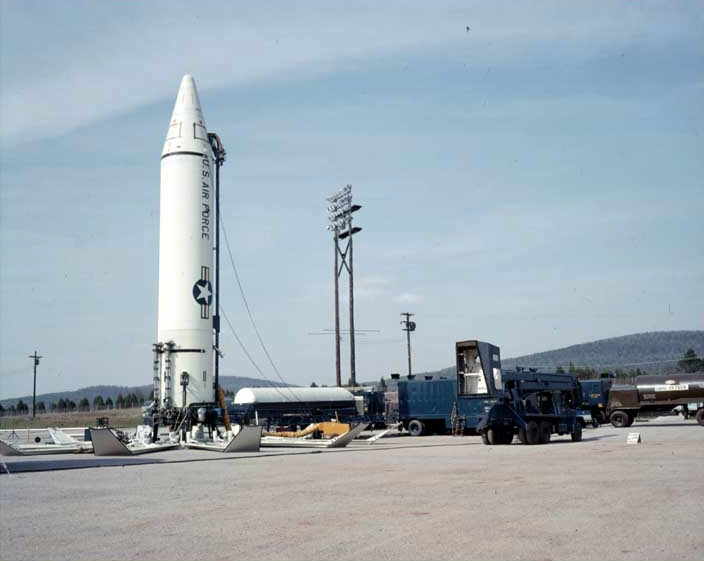


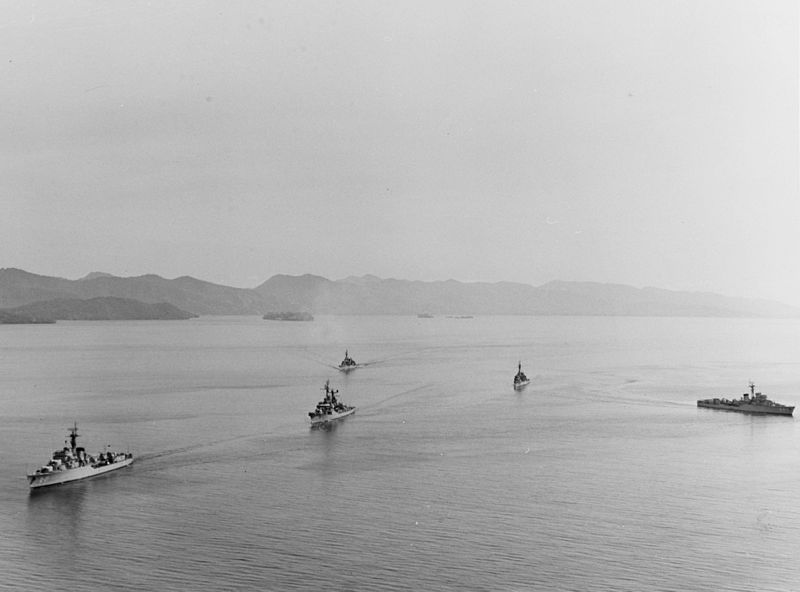








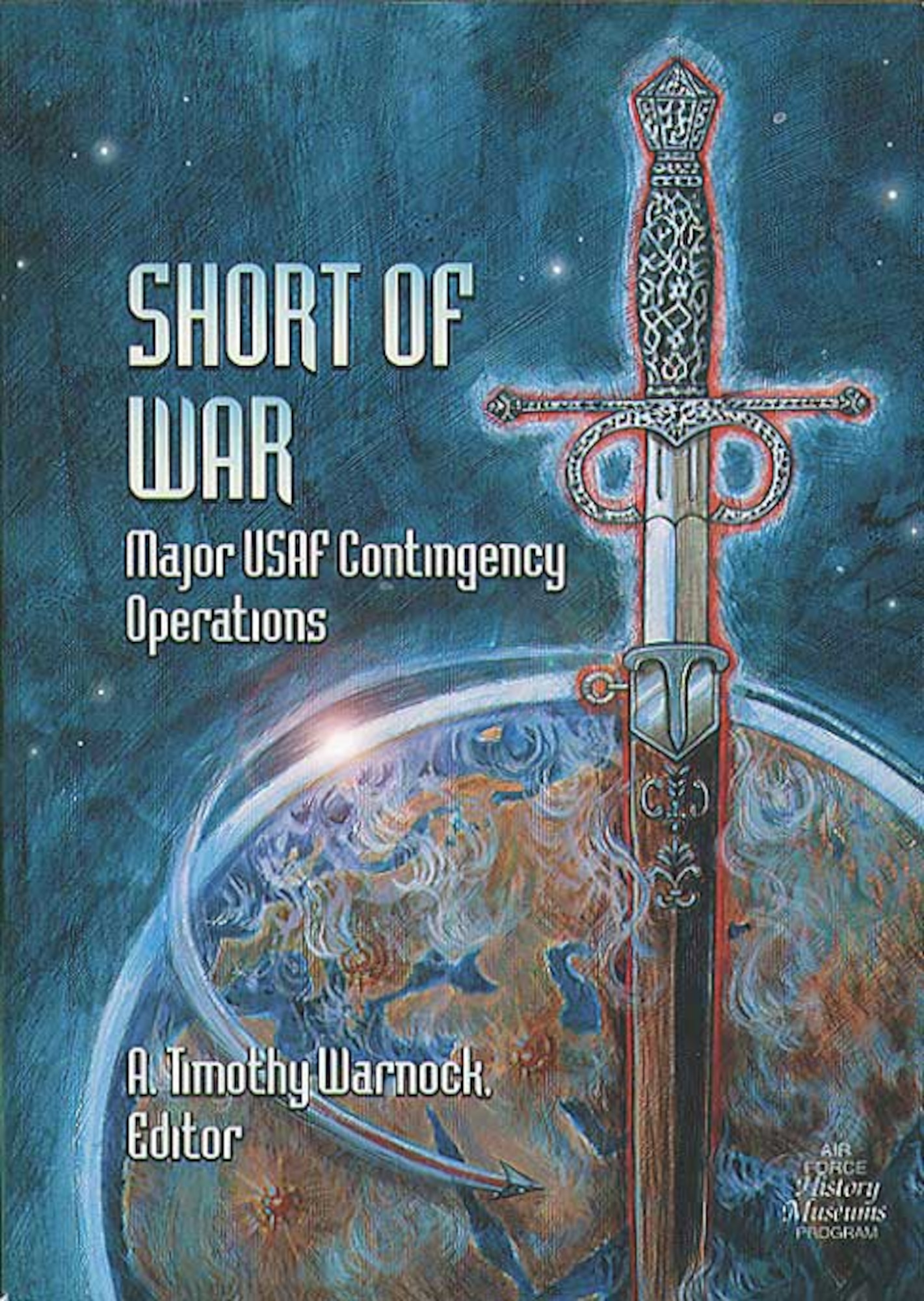








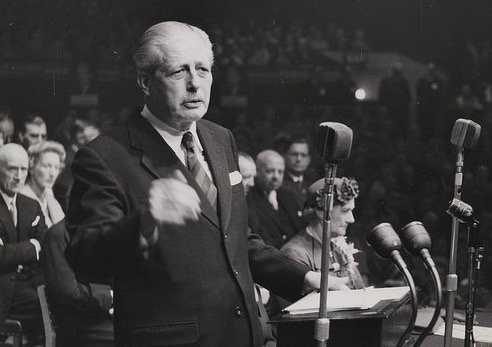


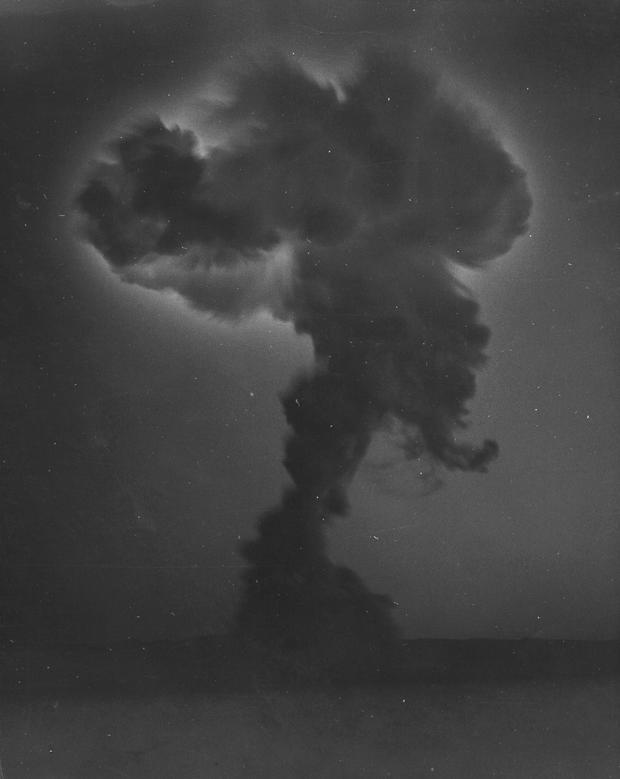
:quality(70)/cloudfront-us-east-1.images.arcpublishing.com/archetype/PSQH74X23ZBEJLATDDO24WHQL4.jpg)
